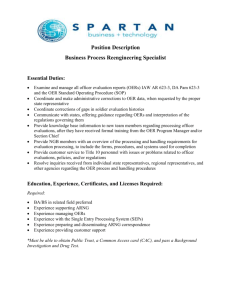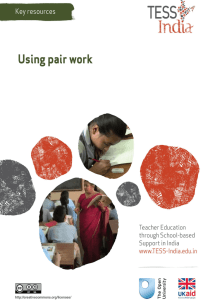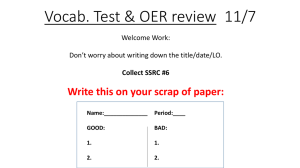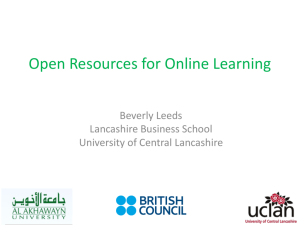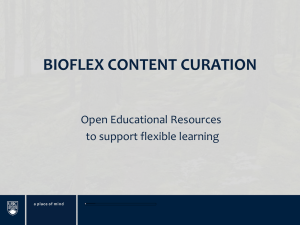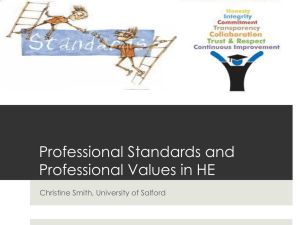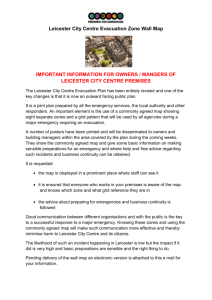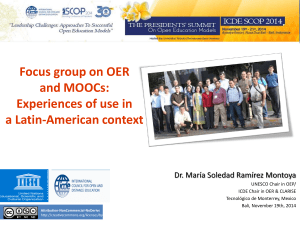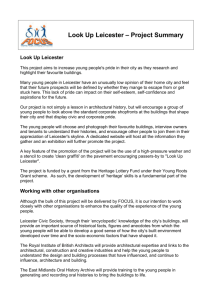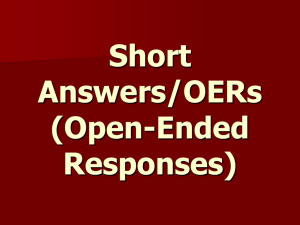Staff interview questions
advertisement
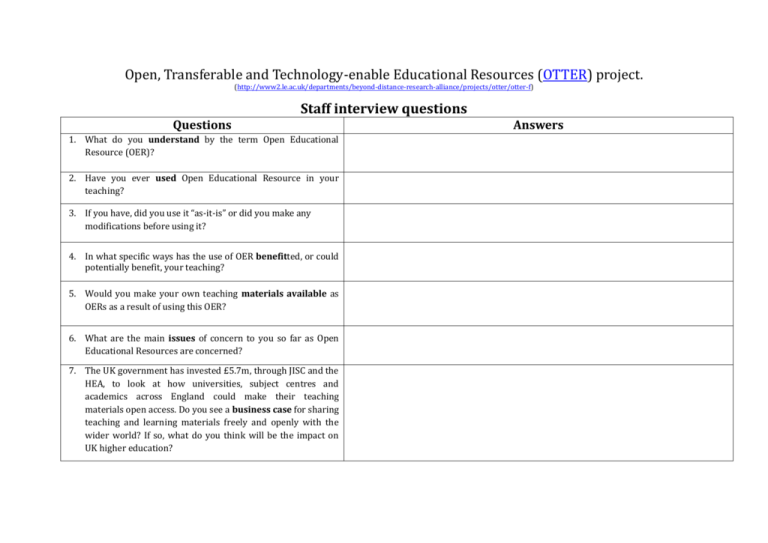
Open, Transferable and Technology-enable Educational Resources (OTTER) project. (http://www2.le.ac.uk/departments/beyond-distance-research-alliance/projects/otter/otter-f) Staff interview questions Questions 1. What do you understand by the term Open Educational Resource (OER)? 2. Have you ever used Open Educational Resource in your teaching? 3. If you have, did you use it “as-it-is” or did you make any modifications before using it? 4. In what specific ways has the use of OER benefitted, or could potentially benefit, your teaching? 5. Would you make your own teaching materials available as OERs as a result of using this OER? 6. What are the main issues of concern to you so far as Open Educational Resources are concerned? 7. The UK government has invested £5.7m, through JISC and the HEA, to look at how universities, subject centres and academics across England could make their teaching materials open access. Do you see a business case for sharing teaching and learning materials freely and openly with the wider world? If so, what do you think will be the impact on UK higher education? Answers Questions Answers 8. The MIT and the Open University have both reported an increase in student numbers as a result of OERs. How do you see OERs benefitting the University of Leicester specifically? 9. What policies are needed to promote and encourage free and open sharing of quality teaching and learning materials within the University of Leicester beyond Blackboard? Could you give us an example of a key message that, in your opinion, would need to be part of such policies? 10. What will be the best way of supporting staff to develop, transform and copyright clear teaching materials for re-use and repurposing as OER? 11. It costs the MIT $10,000 - $15,000 to put material from each course online, and this appears to make business sense to them. If the University of Leicester were to go down the OER route, what would be the best way of funding and sustaining the production and distribution of OERs? 12. What reward mechanisms should be put in place to recognise academics who contribute high quality OERs that lead to the achievement of strategic objectives of the University? 13. What would be the one or two main risks associated with having publicly accessible educational materials at Leicester? How would you suggest they could be mitigated? 14. Is there anything you want to say generally about OERs at Leicester and the OTTER project? Any information you provide as part of this survey will be kept confidential by the OTTER team in accordance with University of Leicester ethical policies. Please email the completed form as an attachment directly to: Dr Samuel Nikoi at samuel.nikoi@le.ac.uk. Thank you.
